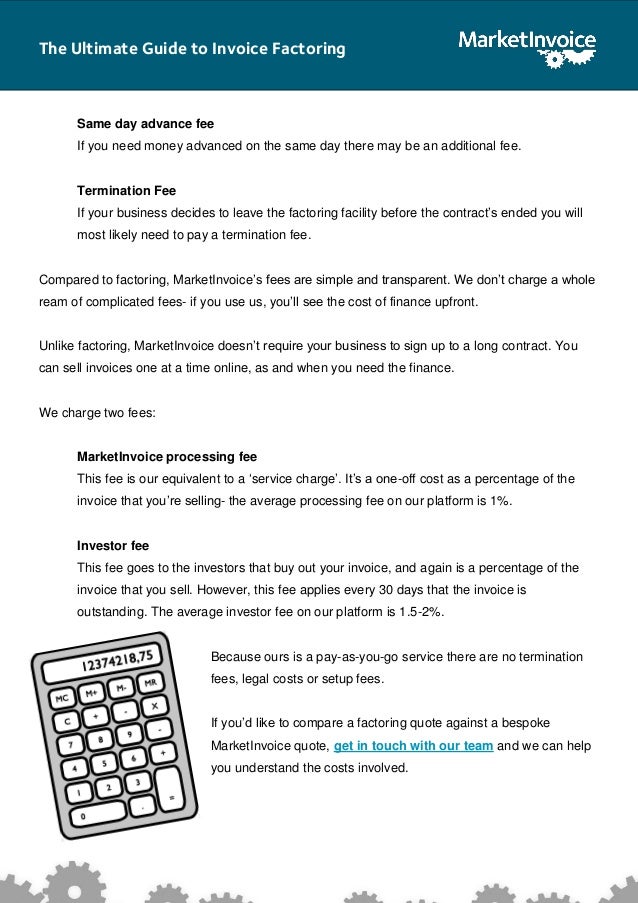

Factoring companies prefer to spread their risk as widely as possible. Unsuitable for businesses with few customers - Invoice factoring isn't suitable for companies with only a handful of main customers. Invoice factoring may also improve the morale of people working in your accounts department, as chasing payments is often stressful work. While there are fees associated with invoice factoring, they may be less than the cost of paying dedicated credit control staff. Reduces your business overheads - Invoice factoring services could reduce your business overheads. Depending on the size of your customer base, that could be a big saving. It also takes the hassle of debt management out of your hands. Many businesses fail due to poor cash flow, and invoice factoring can keep yours healthy – as long as you use it wisely.Ĭheaper and easier than a bank loan - Invoice factoring is usually cheaper than a bank loan and easier to obtain, making it good for short-term funding needs. It makes business planning and forecasting more accurate and allows you to take advantage of opportunities that might otherwise be unaffordable.īetter chance of your business surviving - Better cash flow gives your business a better chance of survival. Improved and more predictable cash flow - By using invoice factoring, you can have the bulk of your invoices paid almost immediately rather than having to wait for the money to come in (potentially after extensive chasing on your behalf). Or for any reason for which cash flow might otherwise be a constraint

Take advantage of seasonal business opportunities Invoice factoring allows you to release that cash almost immediately, or at least a large part of it. That 30-day chunk of revenue might represent the bulk of your potential cash flow, but you can't actually use it.

Most of your debtors will pay within 30 days – some may require chasing, some may not – while others may go over the limit and require more persistent effort on your part. Your company should use invoice factoring when you routinely have a lot of invoices outstanding and your cash flow is suffering because of it.Īs an example, say your organisation sells on 30-day payment terms. When should your company use invoice factoring? The factoring company pays you the remaining invoice amount – minus their fee – once they've been paid in full. The factoring company chases invoice payment if necessary. Your customers pay the factoring company directly. The factoring company pays you the bulk of the invoiced amount immediately, typically up to 80-90% of the value, after verifying that the invoices are valid. You "sell" the raised invoices to a factoring company. You invoice your customers for those goods or services. You provide goods or services to your customers in the normal way. Invoice factoring means selling control of your accounts receivable, either in part or in full. Invoice factoring is also referred to as accounts receivable factoring or debt factoring. There are benefits and disadvantages to invoice factoring, which we'll cover in this article. A factoring company will pay you most of the invoiced amount immediately, then collect payment directly from your customers. Invoice factoring is type of invoice finance where you "sell" some or all of your company's outstanding invoices to a third party as a way of improving your cash flow and revenue stability.


 0 kommentar(er)
0 kommentar(er)
